Publications
Articles, publications, books, tools and multimedia features from the U.S. Institute of Peace provide the latest news, analysis, research findings, practitioner guides and reports, all related to the conflict zones and issues that are at the center of the Institute’s work to prevent and reduce violent conflict.
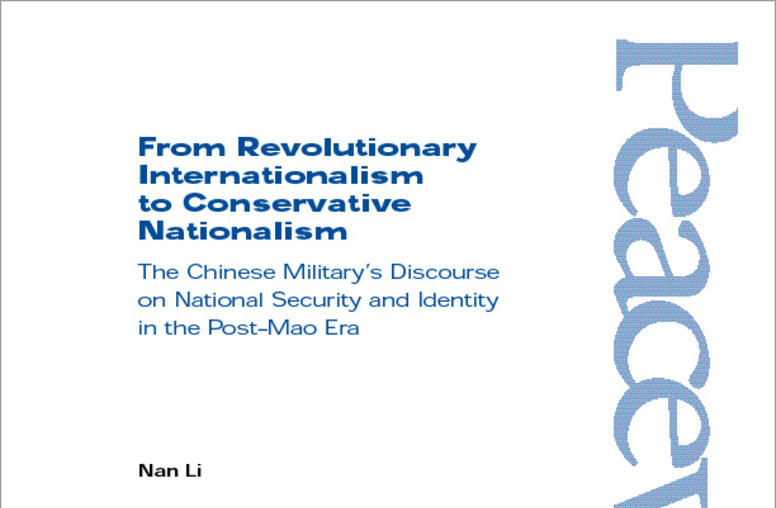
From Revolutionary Internationalism to Conservative Nationalism
Ever since Deng's 1985 "strategic decision" and the corresponding doctrinal change from the country's highest military decision-making body that same year to change Mao Zedong's emphasis on preparing for an early, large-scale, nuclear war, China's military has engaged in a new discourse that is departing from Maoist ideology and moving in a more conservative, nationalist direction. This new military discourse has driven China's foreign policy away from its internationalist and revolutionary f...
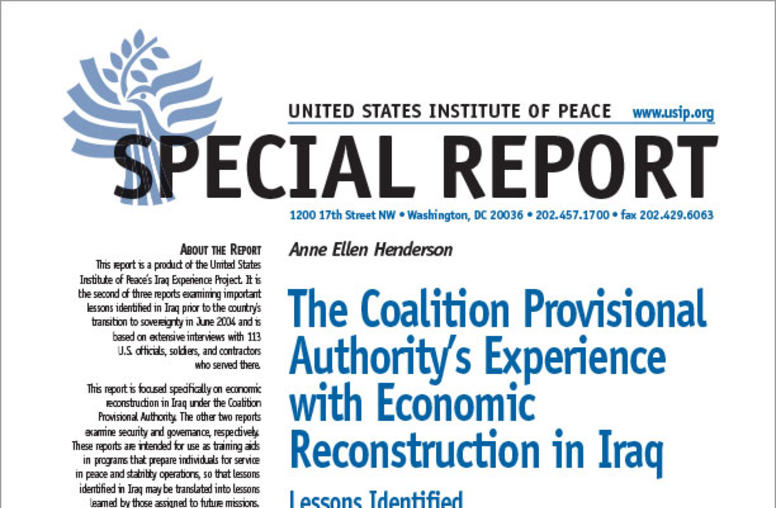
The Coalition Provisional Authority's Experience with Economic Reconstruction in Iraq: Lessons Identified
Summary Iraq's economic reconstruction under coalition occupation was notable for both impressive accomplishments and serious shortcomings. Many successful reconstruction initiatives shared essential elements: they were not affected by security disruptions; they were treated as top priorities; their funding was streamlined and their impact was quick; and they built on existing Iraqi capacity. Unsuccessful reconstruction initiatives had very different elements in common. Policy failure o...
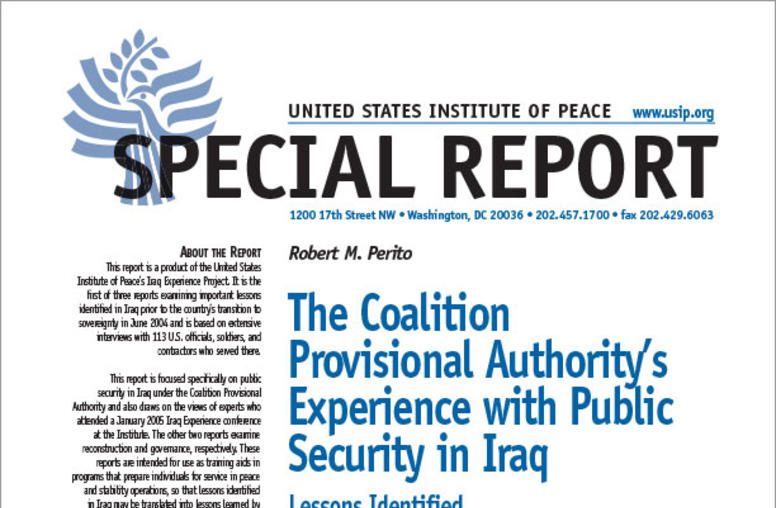
The Coalition Provisional Authority's Experience with Public Security in Iraq: Lessons Identified
Summary Important lessons for future U.S. peace and stability operations can be found in the civil upheaval that occurred in Iraq following the collapse of Saddam Hussein's regime. These include lessons pertaining to public order, street crime, border control, and police recruitment, training, and combat. Large-scale breakdowns in public order should be anticipated in the aftermath of international interventions, particularly in societies emerging from brutal oppression. However, U.S....
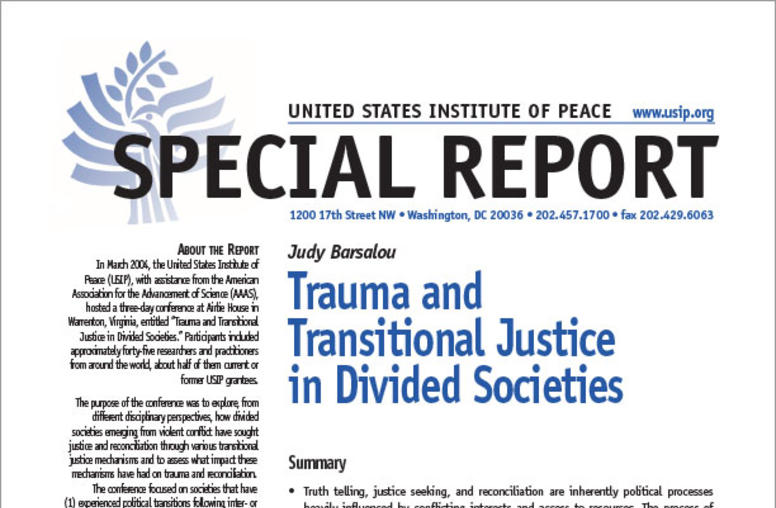
Trauma and Transitional Justice in Divided Societies
In March 2004, the United States Institute of Peace (USIP), with assistance from the American Association for the Advancement of Science (AAAS), hosted a three-day conference at Airlie House in Warrenton, Virginia, entitled "Trauma and Transitional Justice in Divided Societies." The purpose of the conference was to explore, from different disciplinary perspectives, how divided societies emerging from violent conflict have sought justice and reconciliation through various transitional jus...
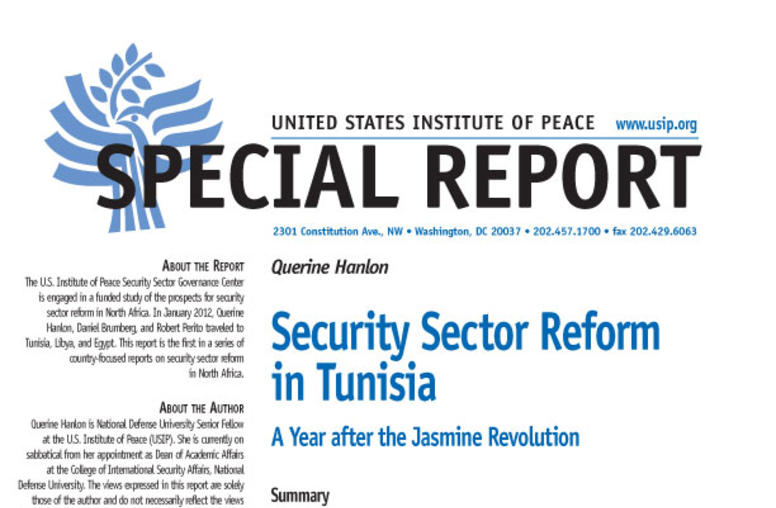
Security Sector Reform in Tunisia
The long-term success of Tunisia’s new democracy hinges on efforts to reform its security sector. Most in need of reform are the police, gendarme, and interior ministry.
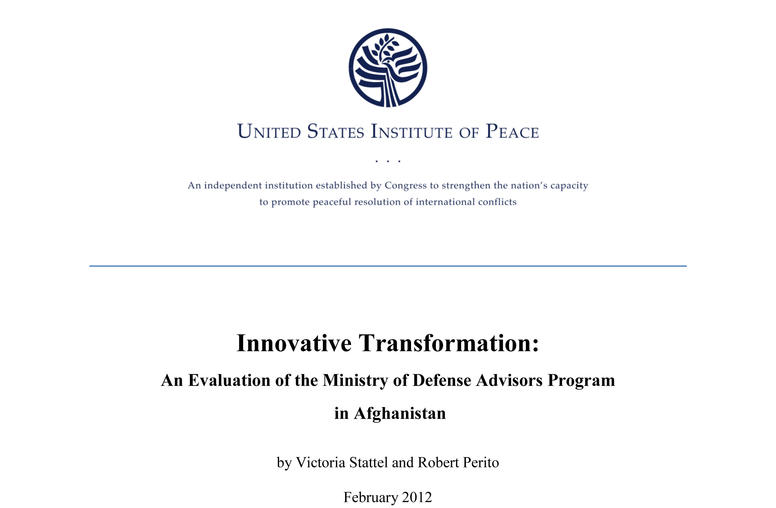
Innovative Transformation
This report examines the selection, training, and deployment of MoDA advisors as well as the strengths and shortcomings of the program. It incorporates the insights of returned advisors, MoDA program staff and instructors, and senior U.S. government officials in Washington and members of NATO Training Mission – Afghanistan (NTM-A). It was prepared at the request of the Office of the Secretary of Defense for Partnership Strategy and Stability Operations.
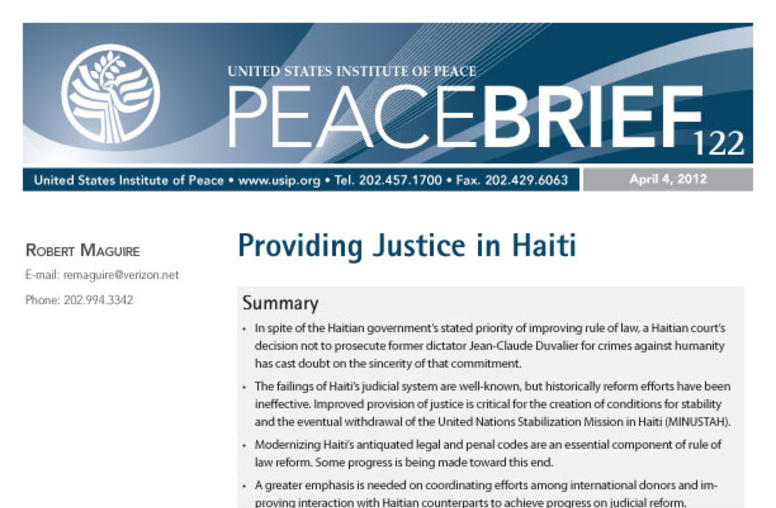
Providing Justice in Haiti
This report is based on the panel presentation and the views expressed at a public forum hosted by USIP’s Haiti Program on February 15, 2012 discussing justice in Haiti and the path forward for judicial reform.
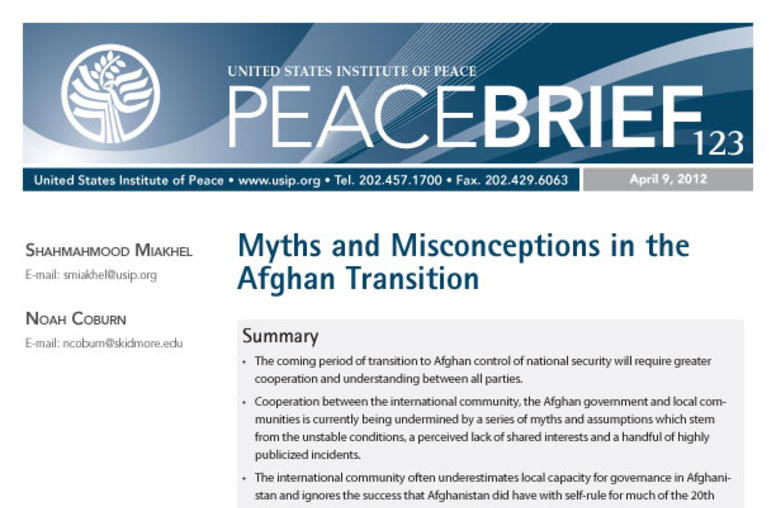
Myths and Misconceptions in the Afghan Transition
The authors have worked for many years in the Kabul office of the United States Institute of Peace in Afghanistan on local governance and rule of law projects. Shahmahmood Miakhel is USIP's Country Director in Afghanistan. From 2003-2005 he was deputy minister of the Interior. Noah Coburn is a political anthropologist focusing on informal justice in Afghanistan and is currently teaching at Skidmore College. He has been conducting research in Afghanistan since 2005 and is the author of "Bazaar...
Navy's CNO Visits USIP
Chief of Naval Operations Adm. Jonathan Greenert visited USIP April 12 to discuss the India-Pakistan relationship, security sector governance and North Korea and the Pacific Rim.
Truth Commission: South Korea 2005
Truth Commission: South Korea Truth Commission: Truth and Reconciliation Commission Duration: December 2005-December 2010 (five years) Charter: Law No. 7542 (May 31, 2005) Commissioners: 14 male, 1 female Report: Public report